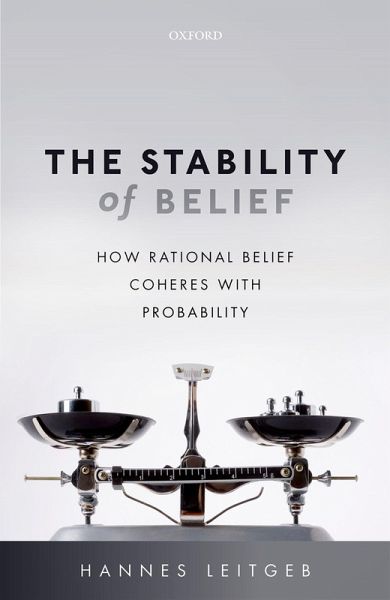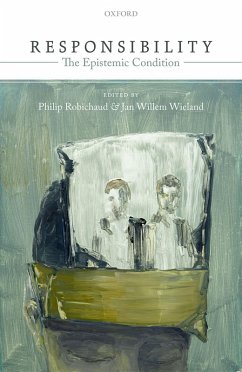
The Stability of Belief (eBook, PDF)
How Rational Belief Coheres with Probability

PAYBACK Punkte
21 °P sammeln!
In everyday life we normally express our beliefs in all-or-nothing terms: I believe it is going to rain; I don't believe that my lottery ticket will win. In other cases, if possible, we resort to numerical probabilities: my degree of belief that it is going to rain is 80%; the probability that I assign to my ticket winning is one in a million. It is an open philosophical question how all-or-nothing belief and numerical belief relate to each other, and how we ought to reason with them simultaneously. The Stability of Belief develops a theory of rational belief that aims to answer this question....
In everyday life we normally express our beliefs in all-or-nothing terms: I believe it is going to rain; I don't believe that my lottery ticket will win. In other cases, if possible, we resort to numerical probabilities: my degree of belief that it is going to rain is 80%; the probability that I assign to my ticket winning is one in a million. It is an open philosophical question how all-or-nothing belief and numerical belief relate to each other, and how we ought to reason with them simultaneously. The Stability of Belief develops a theory of rational belief that aims to answer this question. Hannes Leitgeb develops a joint normative theory of all-or-nothing belief and numerical degrees of belief. While rational all-or-nothing belief is studied in traditional epistemology and is usually assumed to obey logical norms, rational degrees of belief constitute the subject matter of Bayesian epistemology and are normally taken to conform to probabilistic norms. One of the central open questions in formal epistemology is what beliefs and degrees of belief have to be like in order for them to cohere with each other. The answer defended in this book is a stability account of belief: a rational agent believes a proposition just in case the agent assigns a stably high degree of belief to it. Leitgeb determines this theory's consequences for, and applications to, learning, suppositional reasoning, decision-making, assertion, acceptance, conditionals, and chance. The volume builds new bridges between logic and probability theory, traditional and formal epistemology, theoretical and practical rationality, and synchronic and diachronic norms for reasoning.
Dieser Download kann aus rechtlichen Gründen nur mit Rechnungsadresse in A, B, BG, CY, CZ, D, DK, EW, E, FIN, F, GR, HR, H, IRL, I, LT, L, LR, M, NL, PL, P, R, S, SLO, SK ausgeliefert werden.













